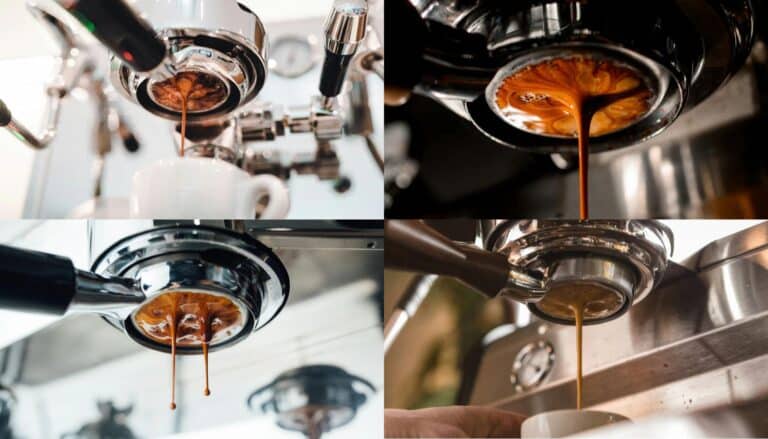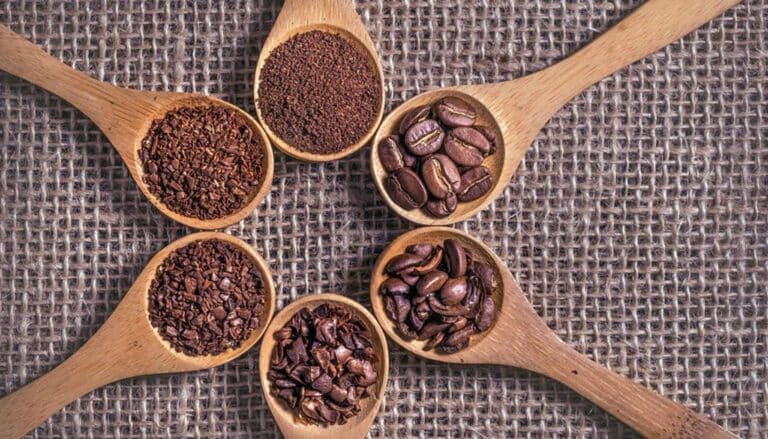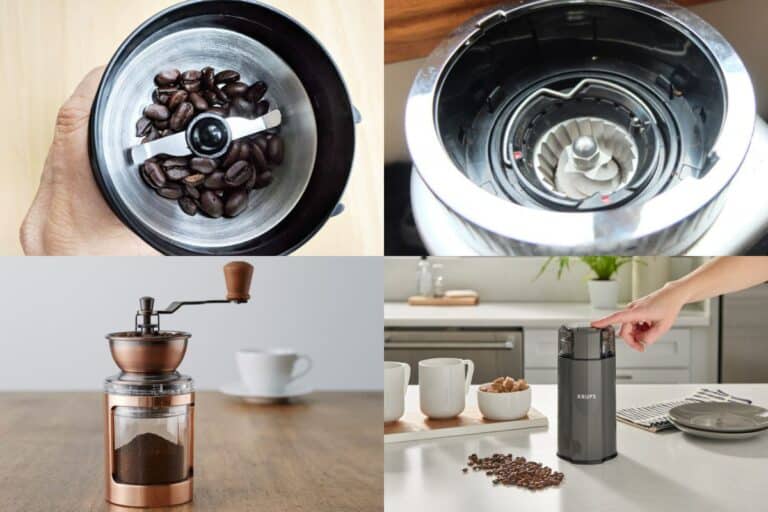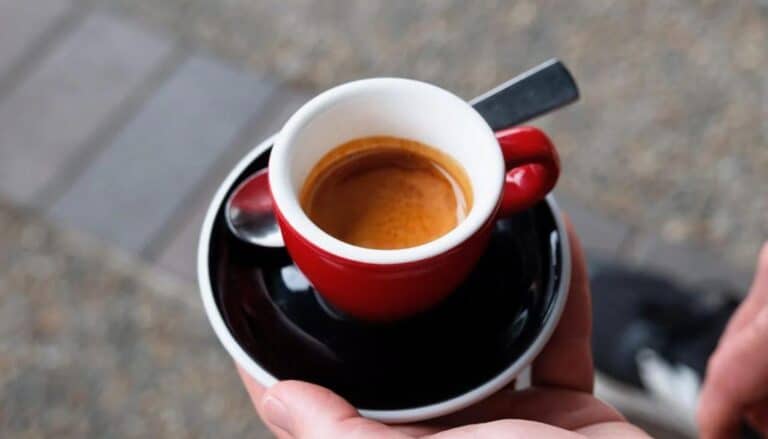When it comes to brewing the perfect cup of coffee, the type of beans you choose can make all the difference. Whether you’re a seasoned coffee connoisseur or a casual drinker, understanding the distinctions between coffee beans and espresso beans is crucial to enhancing your coffee experience. Although the terms are often used interchangeably, there are key differences that set these beans apart, affecting everything from flavor to brewing methods. This blog post delves into these differences, guiding you through the intricacies of coffee beans and espresso beans.
What’s The Difference Between Coffee And Espresso Beans?
Coffee beans and espresso beans differ mainly in their roasting levels, grind sizes, and brewing methods. Coffee beans can be roasted light to dark and ground to varying sizes for different brewing techniques, offering a wide range of flavors. Espresso beans are typically roasted darker and ground finely for espresso machines, producing a concentrated, rich, and smooth shot of coffee.
The Origin and Processing of Coffee Beans
Coffee beans are the seeds of the coffee cherry, a fruit that grows on coffee plants. After harvesting, the beans undergo several processes, including washing, drying, and roasting. The origin, cultivation methods, and processing techniques significantly influence the flavor profiles of coffee beans. Depending on where they are grown and how they are processed, coffee beans can exhibit a wide range of flavors, from fruity and floral to nutty and chocolaty.
The roasting level further diversifies the flavor profiles of coffee beans. Light roasts preserve the beans’ inherent flavors, often resulting in a more acidic and fruity taste. Medium roasts balance acidity with body, offering a well-rounded flavor. Dark roasts, on the other hand, emphasize the roast characteristics, providing a bolder, more robust flavor with reduced acidity. These beans can be used in various brewing methods, including drip coffee, pour-over, French press, and cold brew.
What Defines Espresso Beans?
Espresso beans are, essentially, coffee beans that have been roasted longer and at higher temperatures. This extended roasting time extracts oils from the beans, creating a rich, concentrated flavor ideal for espresso. The beans are usually roasted to a dark or extra-dark level, resulting in a full-bodied texture and bold flavors that can include notes of smoke, caramel, berry, and spice.
Espresso beans are ground to a finer texture compared to regular coffee beans. This fine grind is essential for the espresso brewing process, where hot water is forced through the grounds at high pressure. The result is a shot of espresso with a distinctive crema—a layer of foam on top—that enhances the overall flavor and mouthfeel.
Key Differences Between Coffee Beans and Espresso Beans
Roasting Level
Coffee beans can be roasted to various levels, from light to extra dark, each offering unique flavors. Espresso beans, however, are typically roasted to a dark or extra-dark level. This intense roasting process is crucial for developing the deep, robust flavors characteristic of espresso.
Brewing Method
While coffee beans can be used in numerous brewing methods, such as drip coffee, pour-over, and French press, espresso beans are specifically prepared for the espresso brewing method. The fine grind and high-pressure extraction process are essential for achieving the concentrated flavors and rich crema of espresso.
Flavor Profile
Coffee beans offer a wide range of flavors, from delicate and refined to rich and bold. Espresso beans, on the other hand, are designed to deliver a consistent, bold flavor with a full-bodied texture. The roasting process for espresso beans enhances their natural oils, contributing to their distinctive taste.
Can You Use Coffee Beans for Espresso?
Technically, you can use regular coffee beans to make espresso by grinding them to a fine texture. However, the resulting flavor may not be as intense or bold as when using espresso beans. Regular coffee beans may lack the necessary oils and depth of flavor that espresso beans provide, leading to a less satisfying espresso shot.
Choosing Between Coffee Beans and Espresso Beans
The choice between coffee beans and espresso beans ultimately depends on your brewing method and flavor preferences. Here are some guidelines to help you decide:
Choose Coffee Beans If:
- You want to brew drip coffee, pour-over, cold brew, or French press.
- You prefer a variety of flavors, from light and fruity to rich and bold.
- You enjoy experimenting with different brewing methods and flavor profiles.
Choose Espresso Beans If:
- You love bold, full-bodied espresso shots.
- You have an espresso machine and want consistent, high-quality espresso.
- You want to make espresso-based beverages like lattes, cappuccinos, and macchiatos.
Espresso vs. Coffee: Strength and Caffeine Content
One common misconception is that espresso is stronger in caffeine than regular coffee. While an espresso shot has a more intense flavor due to the dark roast and concentrated brewing method, it actually contains less caffeine per ounce compared to a cup of regular coffee. This is because the longer roasting process for espresso beans reduces their caffeine content. However, because espresso is typically consumed in smaller quantities, the overall caffeine intake may be comparable.
The Cultural and Historical Context of Espresso
Espresso has a rich cultural history, particularly in Italy, where it is an integral part of daily life. The popularity of espresso spread globally, influencing coffee cultures worldwide. In the 1990s, espresso became synonymous with the hip and sophisticated coffee experience, popularized by cafes and coffee shops like Starbucks. This trend led to the widespread marketing of “espresso beans” to cater to the growing demand for this intense and flavorful coffee.
Conclusion: Enhancing Your Coffee Experience
Understanding the differences between coffee beans and espresso beans allows you to make informed choices based on your preferences and brewing methods. Whether you enjoy the diverse flavors of regular coffee or the bold, concentrated taste of espresso, selecting the right beans can significantly enhance your coffee experience. By experimenting with different roast levels and brewing techniques, you can discover the perfect cup that suits your taste.
In the end, whether you choose coffee beans or espresso beans, the key is to enjoy the journey of exploring the rich and diverse world of coffee. Each cup offers a unique experience, a moment of indulgence that can brighten your day and satisfy your senses. So, brew a cup, savor the flavors, and appreciate the artistry and craftsmanship that goes into every bean.






